Eco-finance
Your Present Location: PROGRAMS> Eco-finance-
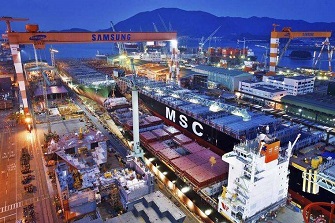
Ding Gang: China, South Korea cross paths in industry
South Korean tech giant Samsung reportedly shut down its last mobile phone factory in China in early October, signaling the chaebol's complete withdrawal from the burgeoning smartphone industry in the world's second-largest economy. This is an obvious result of industrial competition between China and South Korea, prompting the warning that intensifying competition between the two countries' industries can't be ignored.
2019-10-17 -
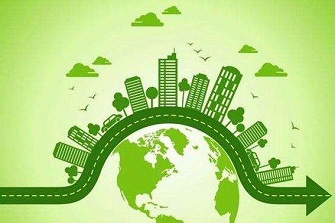
Ma Jun: Chinese green finance solutions prove their worth
Shifting to new environmentally friendly growth drivers has helped set the country on the path to sustainable growth. China has become one of the biggest economies in the world, but the economy is under pressure to adopt a new development model given that environmental issues such as air, water and soil pollution can hit sustainable development. A business-as-usual approach, which involves high energy consumption and high carbon emissions, has become untenable in the wake of global warming. Hence, the transition toward a low-carbon future is inevitable for a responsible stakeholder such as China.
2019-10-16 -

William Jones: Global competitiveness report a wake-up call on the economy
It was a rather gloomy picture presented in this year's Global Competitiveness Report issued by the World Economic Forum. The report is said to be an indicator of how close an economy is to the "frontier" of competitiveness in the various areas of the economy. While the definition of "competitiveness" is somewhat elusive, and perhaps rather subjective, it does include as a basic element the notion of productivity increases, and in that sense has a real basis in reality.
2019-10-11 -
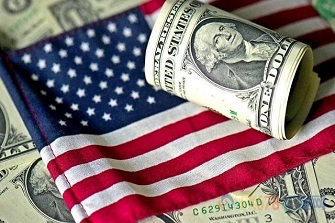
John Ross: US economy slowing but not in danger of recession
Will the US enter a recession in 2020, a US presidential election year, or will its economy only slow further without entering actual recession? That is the discussion among the overwhelming majority of US economists. To illustrate this, Bloomberg asked on October 5, "Is the US Headed for a Recession?" Its analysis began, "Through all the noise around US data this week, a clear signal is emerging: The world's biggest economy is slowing down. The question now is, how badly?"
2019-10-10 -

William Jones: Don’t Draw the Wrong Conclusions from “American Factory”
The recently released documentary film “American Factory” by Julia Reichert and Steven Bognar is another one in the genre of films that are aimed at depicting the life and the trials of the American working class and the travails of modern capitalism. Reichert has done a number of these films, but “American Factory” has gained a greater amount of notoriety because it depicts a Fuyao auto-glass factory in Ohio which was set up by a Chinese entrepreneur, Cao Dewang, on a site of a closed General Motors assembly plant, hiring many of the American workers who had been laid off from their GM jobs after the 2008 financial crisis.
2019-09-27 -
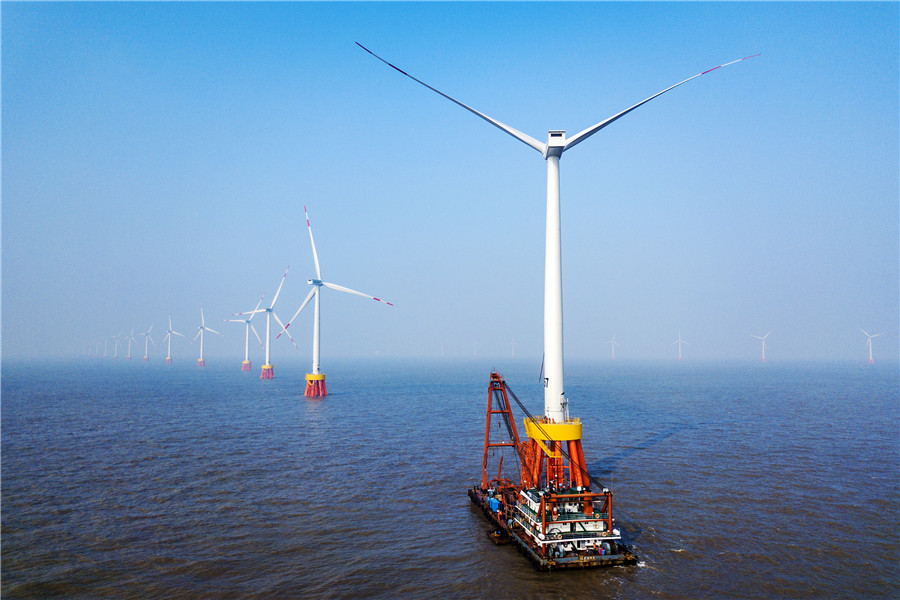
Green routes to high-quality development
Clean energy, environmentally friendly technology, green infrastructure, planet-preserving finance... sustainable economic development on a global scale is achievable with sustained efforts, sharp focus, visionary policy and imaginative project implementation-that's the takeaway for umpteen businesses participating in, and benefiting from, China-led Belt and Road Initiative, experts said.
2019-07-17 -

Green Belt and Road principles receive industry backing
The City of London Corporation's Green Finance Initiative (GFI), in partnership with China's Green Finance Committee (GFC), announced today that 27 firms from around the world have signed up to a set of green finance guidelines for the Belt and Road Initiative (BRI).
2019-04-29 -

Green investment prioritized in Belt and Road cooperation
The City of London Corporation's Green Finance Initiative (GFI), in partnership with China's Green Finance Committee (GFC), announced today that 27 firms from around the world have signed up to a set of green finance guidelines for the Belt and Road Initiative (BRI).
2019-04-26 -

Green investment prioritized in Belt and Road cooperation
The City of London Corporation's Green Finance Initiative (GFI), in partnership with China's Green Finance Committee (GFC), announced today that 27 firms from around the world have signed up to a set of green finance guidelines for the Belt and Road Initiative (BRI).
2019-04-26 -

China, EU up the ante on environmental cooperation
The European Union and China plan to launch a system that could translate their green definitions to facilitate the flow of environment-focused funds amid enhanced cooperation in the field.
2018-12-11 -
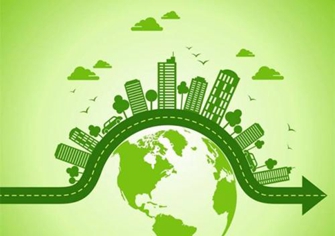
China greening the BRI with help from London
The City of London and China's central bank jointly launched an initiative in London on Friday to encourage banks to finance environmentally friendly projects along the Belt and Road trade routes.
2018-12-10 -
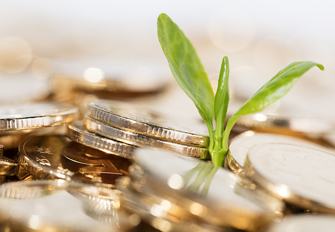
China, UK publish guidelines to make Belt & Road construction greener
The Green Finance Committee (GFC) of the China Society for Finance and Banking and the City of London's Green Finance Initiative (GFI) on Friday jointly published a set of green finance guidelines for the China-proposed Belt and Road Initiative (BRI).
2018-12-04 -
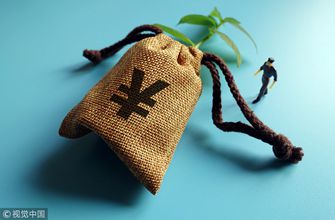
US, China sign MOU on green finance
In a news release posted on its website, the Paulson Institute said the agreement prioritizes four areas of focus to help advance China's transition to a low carbon economy: conducting policy research on the G20 sustainable development; exploring innovative financial instruments and products and developing pilot projects in key areas of China's green finance development; building capacity with a focus on green finance knowledge sharing and dissemination of best practices for officials, regulator
2018-10-22 -
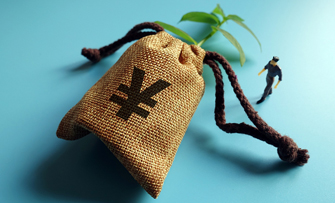
Ma Jun: China should lower risk weight for green assets
With stringent green credit standards and a lower green loan default rate since 2013, China should be the first country to consider lowering the risk weight for green assets, according to a member with the monetary policy committee of China's central bank.
2018-10-15 -

China leads world at pushing market financial tools to create ecological civilization
China's financial regulators are creating incentive programs to encourage banks and other financial institutions to invest the huge sums needed for green development, as part of China's overall goal of building an ecological civilization.
2018-08-17 -
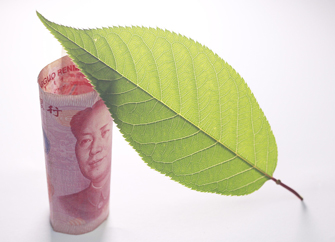
Green finance pilot to be extended
China is preparing a nationwide green finance development trial model and extending a one-year pilot program in five provinces, to encourage faster and cheaper loans for environment-friendly industries, according to a senior central bank official.
2018-07-05 -
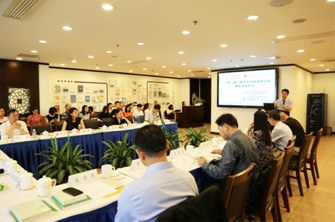
Seminar on green investment benefit for BRI and book launching ceremony held in RDCY
On June 29th, a seminar on the Green Investment Benefit for “Belt and Road” Initiative (BRI) and new book launching ceremony, jointly sponsored by Chongyang Institute for Financial Studies at Renmin University of China (RDCY), People’s Publishing House, and Center for Eco-Financial Studies at Renmin University of China and guided by Green Finance Committee at China Society for Finance and Banking (GFC), was held in Beijing.
2018-07-03 -
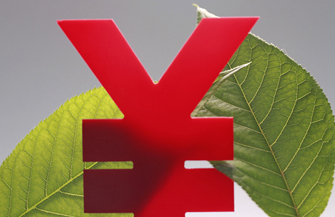
China eyes clean development via green finance
China may introduce an ESG reporting mechanism for listed firms to require more transparency in disclosing information related with environment, social and governance issues, the China Securities Regulatory Commission (CSRC) said Monday.
2018-05-23 -
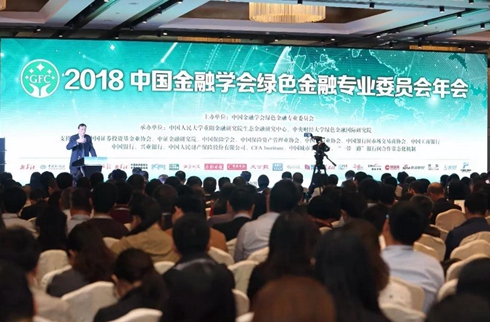
The largest green finance meeting in history held in Beijing
On April 21st, hosted by the Green Finance Committee of China Society for Finance and Banking (GFC), co-organized by the Center for Eco-financial Studies of Chongyang Institute for Financial Studies at Renmin University of China (RDCY) and the International Institute of Green Finance (IIGF) at the Central University of Finance and Economics. The 2018 Annual Meeting of GFC was held in Beijing. Representatives from more than 220 member units of GFC, 70 related units and over 50 media attended the
2018-04-23 -

UK and China to drive green finance globally
The UK and China partnership in green finance has been crucial to drive this agenda globally. We are keen to help propose solutions that suit both private and public sector participants.
2018-04-03























































































 京公网安备 11010802037854号
京公网安备 11010802037854号





